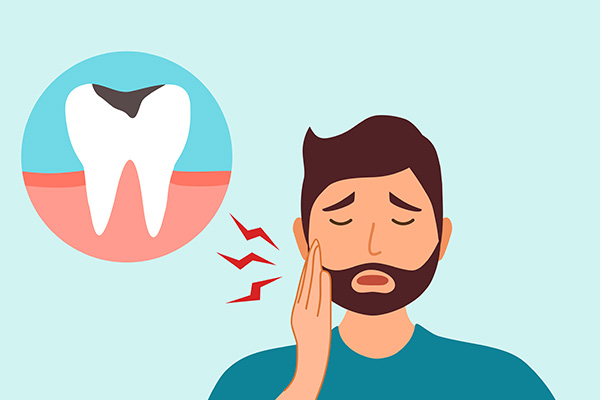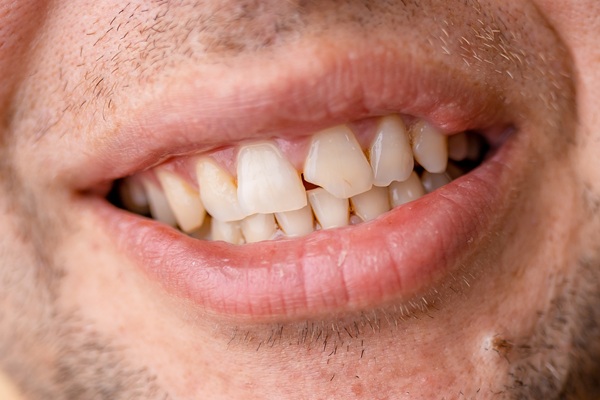 General dentistry helps you to deal with issues like toothaches. Toothaches are your brain’s way of telling you that there is something wrong with a tooth. It can be caused by things like tooth decay, damage to a tooth’s structures, or infection. A mild toothache that goes away on its own is often not a cause for concern, but one that keeps coming back and intensifying is typically a sign that general dentistry treatments are needed.
General dentistry helps you to deal with issues like toothaches. Toothaches are your brain’s way of telling you that there is something wrong with a tooth. It can be caused by things like tooth decay, damage to a tooth’s structures, or infection. A mild toothache that goes away on its own is often not a cause for concern, but one that keeps coming back and intensifying is typically a sign that general dentistry treatments are needed.
How general dentistry fixes toothaches
A toothache is a sign that something is wrong with a tooth, and the only permanent solution is figuring out its root cause. Painkillers or over-the-counter toothache products only help manage the pain. Left untreated, the problem will worsen until the pain becomes so severe, a patient must head to the nearest dentist.
Treatment for a toothache starts with the dentist diagnosing the root cause of the patient’s problem. A visual examination might be performed, and the dentist might touch parts of the affected tooth to see how the patient reacts. Diagnostics like X-rays can be used to get a clearer picture of what is going on inside a tooth.
Once the cause of the patient’s problem has been identified, appropriate treatments can be carried out. Treatments that a dentist might recommend to help address toothaches include the following.
1. Fillings
Fillings might be recommended if cavities are causing the patient’s pain. Cavities leave the inner dentin of a tooth exposed to acids, sugars, and bacteria in the mouth, which often leads to toothaches and increased sensitivity.
Filling up a cavity involves administering a shot of a local anesthetic and cleaning out the decayed parts of the tooth. A putty-like filling material is then inserted into the tooth. It forms a barrier that prevents acids in the mouth from getting into the cavity, and it serves as artificial enamel for the sensitive dentin. That is often enough to stop toothaches caused by cavities.
2. Crowns
A crown is often recommended when a tooth has been severely damaged or decayed. The crown covers the tooth's visible part and prevents irritants like acids in the mouth from getting to the tooth. This prevents further damage while restoring the tooth’s function.
3. Root canal
A root canal is used to treat severely decayed or damaged teeth with a compromised pulp chamber. The pulp chamber contains a tooth’s nerve and blood vessels. These soft tissues are prone to infection when the pulp chamber is opened up. When a tooth is intact, its pulp chamber is sealed off from the rest of the tooth, preventing acids and bacteria from reaching its soft tissues.
Root canal therapy involves removing the soft tissues in the pulp chamber and sealing the tooth back up. Teeth restored with root canal therapy are often covered with crowns to prevent further damage and decay.
Put tooth pain behind you
Are you ready to bring your toothache pain to an end? Call or stop by our Lilburn clinic to set up an appointment with our dentist.
Request an appointment or call Lilburn Family Dentistry at 770-800-0178 for an appointment in our Lilburn office.
Recent Posts
People visit the general dentistry office because they desire healthy oral cavities, free of cavities. However, a checkup can show more than cavities. Dentists do not only perform dental cleanings and restorations. They also examine the mouth for present or potential health issues so patients can take appropriate precautions to avoid them or get them…
General dentistry focuses on preventative dentistry, but it also includes restorative treatments that address problems like a loose tooth. A tooth becoming loose may eventually lead to it falling out of its socket, so such issues should never be ignored.General dentistry has multiple ways to address issues like a loose tooth. It often comes down…
Many are familiar with how sugar can affect overall health, but fewer are familiar with why general dentistry practices recommend avoiding sugar. Sugar can have a negative impact on oral health and the appearance of your smile. This article discusses exactly why sugar is potentially harmful to the teeth and gums.The following is everything to…


